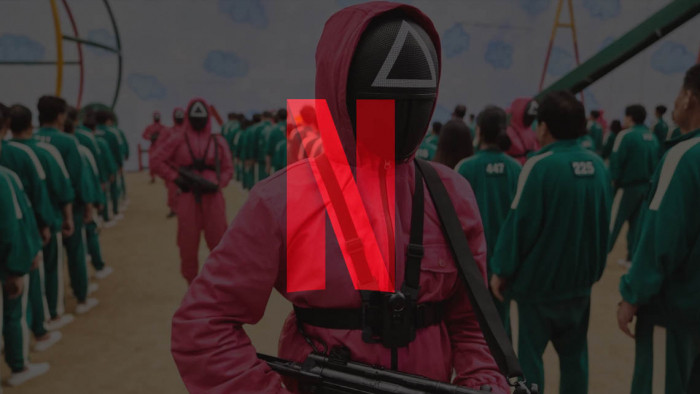Everything you wanted to ask about the 'dark web'
With reports the recent Munich mass shooter acquired his weapon on the 'dark web', we shine a light on this murky world


On Friday 22 July, 18-year-old David Ali Sonboly opened fire in a busy shopping centre in Munich, Germany, killing nine and injuring several more before taking his own life.
In the aftermath of the horrific event, German investigators suggested that the teenager may have acquired the Gloch handgun he used to carry out the attack from the ominously titled 'Dark Web'.
Having gained renewed public interest, we've laid out a basic introduction to the shady workings of a part of the internet you've probably never used.

What is the dark web?
Dark web, dark net - while there are many names to this murky service, they all largely refer to an encrypted, peer-to-peer web service that requires specific software to access and navigate it.
Websites and services that exist in the dark web won't pop up in a Google search thanks to the way it's structured: the majority of websites you use on a daily basis sit on public servers - 'open' sites you can find by sticking a URL into a web browser.
Websites on the dark web aren't 'open', but require an additional tool such as Tor. In essence, this makes your connection to the internet anonymous, bouncing your IP address (a number unique to your internet connection) through layers of networks.
There are websites that can only be reached through such services as Tor, and it's these websites that make up the 'dark web' - websites that don't exist in one place like normal websites, but that float about between networks, making it virtually impossible to pin them down.

So wait, what's the deep web?
Despite it being thrown around in some reports as synonymous with 'dark web', the deep web isn't exactly the same.
The deep web refers to everything that exists on the web, but that a search engine can't find. For instance, most web pages have a content management system that produces test pages and back-end structures that won't come up on Google search results.
The deep web includes the dark web, which is why they're often conflated - but in reality, the deep web is much, much bigger.

How do I get on the dark web?
There are several services built to help navigate the murky corners of the dark web, but these are three of the most popular:
- Tor: free software that largely sells itself on guaranteeing an anonymous web connection - hugely useful if you live in a country whose leaders might deny you a truly open experience of the internet. The name 'Tor' derives from its original project name, 'The Onion Router', owing to the way it bounces your IP address through layers of networks.
- I2P: another anonymous overlay network, I2P gives you an anonymous internet connection, and can be installed on Android phones as well as standard PCs. It also has several messaging services, including email and an instant messenger.
- Freenet: a service that sells itself on privacy and freedom of speech, Freenet is - oddly enough - a free way to browse peer-to-peer networks, publish documents and share files anonymously.

What's on the dark web?
Well, how long have you got?
Due to the anonymous nature of the dark web, it's long been used as a place to sell goods and services - both legal and illegal.
A recent study by researchers from King's College London found that 8.1 per cent of hidden services available on the dark net were connected to sales of drugs, 2.3 per cent of pages were concerned with illicit pornography and 0.8 per cent of services existed for the sale of illegal arms.
You can find extremist groups, hitmen for hire, stolen passwords and email addresses for sale, and, yes, guns. Seriously dark, nasty things.
But it's not all bad: the dark net is also an incredibly useful tool for whistleblowers and journalists looking to remain anonymous.

How do you buy stuff on the dark web?
How do you buy something with real-life money on a web system built to help people remain anonymous?
In short, cryptocurrency - virtual cash that isn't controlled by a centralised bank. One of the most popular cryptocurrencies is bitcoin.

Does this have anything to do with the Silk Road?
Yes, it certainly does.
One of the most famous market places of the dark net was Silk Road - an anonymous web market launched in 2011 largely for the sale of drugs.
Due to the way in which the service existed on the dark web, it was a headache for law forces to identify and shut down the Silk Road. In 2013, the FBI arrested Ross William Ulbricht, a man thought to be the market's original founder.
After Silk Road was shut down, the service's administrators set up Silk Road 2.0, before this too was shut down in 2014.
So long as the dark web exists, dark markets such as Silk Road will always exist.

How do you find stuff on the dark net?
Well, with some difficulty.
Some dark net websites will only exist on the service you use to access the dark net, it can be pretty hard work to find exactly what you want.
You can find services available on the dark net listed on 'normal' websites like Reddit, or on Wikis such as thehiddenwiki.org.
There are dark web search engines for services such as Tor which can help you navigate its many sites, but just be careful what you go poking around for, okay?

Is anyone trying to monitor the dark web?
You bet.
In the UK, a group called the Joint Operations Cell, operated by both the National Crime Agency (NCA) and Government Communications Headquarters (GCHQ) exists to monitor the dark web, clamping down on serious crime and child pornography.
If you can go looking for something on the dark web, chances are there's already a law enforcement group using the same free anonymous services to find the same stuff. How they go about shutting it down is a long, complicated process we don't envy.
Latest
Related Reviews and Shortlists


The best Doctor Who episodes, ranked








